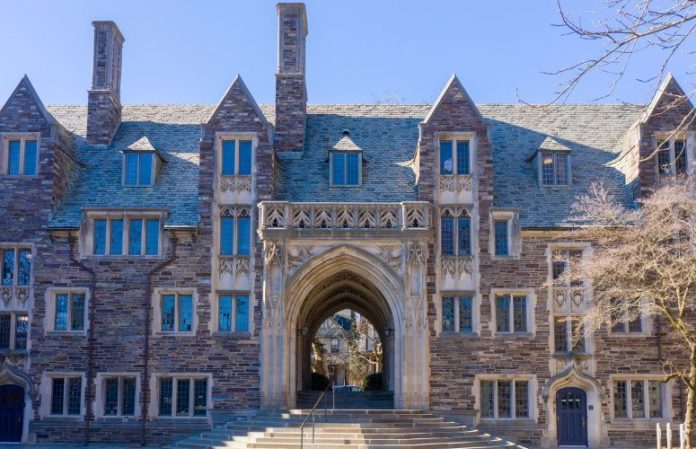PRINCETON, N.J. — On December 8, Princeton University in New Jersey hosted a talk by Azerbaijan’s ambassador to the United States, Khazar Ibrahim, through its “Institute for the Transregional Study of the Contemporary Middle East, North Africa, and Central Asia” (TRI).
That one of the most prestigious universities in the country — and the world — gave the Azerbaijani government a platform to promulgate its ideas, did not go unnoticed by the Armenian-American public. Formal complaints were filed by Armenian community institutions, including a large number of Armenian-American student groups.
Nevertheless, the talk went on as scheduled. Entitled “The Caucasus Region at a Crossroads: The Challenges and Prospects for Peace and Cooperation,” the event took place on Zoom and was moderated by Prof. Bernard Haykel, director of the institute.
Haykel, an expert on contemporary Middle Eastern politics, has been interviewed by the media numerous times in regard to conflicts in the region; he is especially noted as one of the Western world’s foremost authorities on ISIS. Haykel opened the meeting by noting that although complaints and protests had been registered by Armenian community members, the talk was justified by the principle of free speech. He also noted that the institute plans to host speakers from a variety of viewpoints in the future, including the viewpoint of the Republic of Armenia.
The Speech
Ibrahim, appointed in July 2021, previously served as ambassador to Turkey and also its representative before NATO. He holds master’s degrees from Baku State University and Georgetown.









